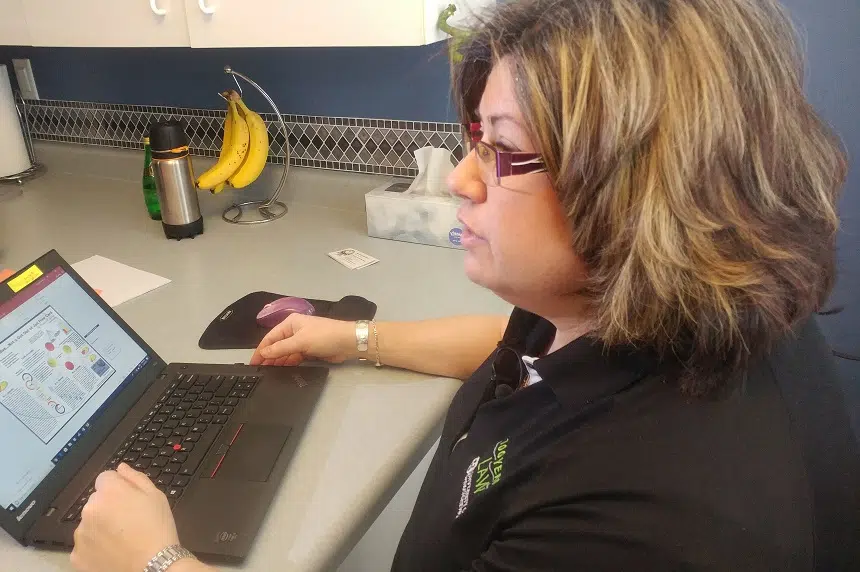The woman responsible for the majority of Gladue reports in Saskatchewan is calling on the province and First Nations communities to provide more funding to give Indigenous offenders the supports they need.
Christine Goodwin travels across Saskatchewan to speak with family members and Indigenous communities about their relatives caught up in the justice system for a variety of offences. She researches their pasts, ranging from residential school experience to child abuse and addictions issues.
“The information that I get is toxic. It is just toxic to the core,” she said. “These are not people that have lived a rosy life.”
She compiles the information into a pre-sentencing document for the courts — called a Gladue report after the woman who won the right to consideration of colonial effects in a Supreme Court of Canada decision. It outlines possible alternatives to a simple prison sentence, which could help an Indigenous offender become a productive member of society.
Goodwin emphasizes it’s not a “get out of jail free” card, but rather an opportunity to try something that might work.
In an interview with reporters Wednesday, she detailed the case of a man who had been in and out of prison for his whole life, and how a Gladue report changed the judge’s perspective.
“He said, ‘you know what, nothing else has worked. We have been doing this for 30 years and nothing has worked,'” she remembered.”‘Why don’t we try the alternatives to incarceration that have been researched and set out.'”
However, Goodwin can only do so many reports in a year. She believes she is the only Saskatchewan-based writer for the documents, and it’s causing the province to fall behind.
She said since 1999 there have only been about 75 Gladue reports submitted to the courts in Saskatchewan — 25 written by her since 2015. She compared that to Alberta, where nearly 575 reports were filed in 2017 alone.
Goodwin said there have been attempts to train other writers, but they’ve either “burned out” or been rejected by judges for their credentials.
Last year, she said she was able to write 10 reports, costing a base amount of $3,000 each with expenses for travel added on. About 20 documents were prepared in total for the courts, with the others being written by out-of-province contractors.
Goodwin said most of the reports are funded by the Ministry of Justice after being ordered by a judge. But when an offender’s request for a Gladue report is turned down, they can only have one submitted if they pay for it themselves.
The former lawyer noted a contributing factor to the lack of reports being requested in Saskatchewan is due to little knowledge of their existence.
“It’s so rare that it even gets asked for here,” she said, adding many offenders and defence lawyers don’t know they’re able to ask the judge for a Gladue assessment.
Goodwin said she hopes the province and First Nations communities will “step up” to fund salaried Gladue report authors, ideally people from the communities they would have to interview.
It’s a model similar to the one employed in Ontario, where she said 200 Gladue reports were submitted in 2017.
“The trick in doing that is the training,” she said. “I’m prepared to do training for that.”







